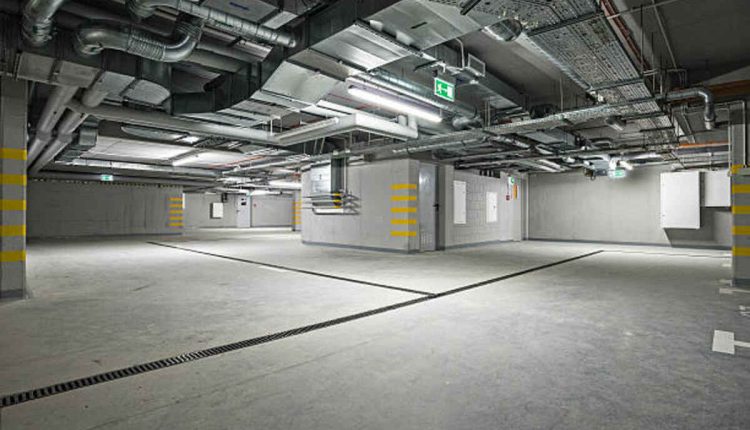Traditionally, basements have relied on ventilation and dehumidifiers to combat moisture problems. While these methods can be effective, they have limitations. Ventilation can be inefficient, especially in colder climates where warm, moist air escapes, pulling in cold, damp air from outside. Dehumidifiers can be energy-intensive, requiring constant operation and frequent emptying of collected water. Thankfully, the world of dehumidification is evolving, and desiccant wheel technology is emerging as a powerful tool for maintaining a dry and healthy basement environment. Look for the best info about HCW basement waterproofing.
What are Desiccant Wheels?
Desiccant wheels are rotating devices filled with a desiccant material, a substance with a high affinity for moisture. Here’s how they work in a closed-loop system to keep your basement dry:
- Moisture Absorption: As moist air from the basement passes through the desiccant wheel, the desiccant material captures water vapor. Unlike traditional dehumidifiers that rely on condensation, desiccant wheels can operate effectively even at colder temperatures.
- Regeneration: A separate hot air stream regenerates the desiccant wheel by driving off the absorbed moisture. This hot air stream can be generated by integrating the desiccant wheel system with your existing furnace or a dedicated heating element. The desiccant wheel itself remains relaxed and efficient throughout the process.
- Dry Air Delivery: The dehumidified air is circulated back into the basement, creating a drier environment. This continuous cycle ensures consistent moisture control.
Benefits of Desiccant Wheel Dehumidification
Desiccant wheel dehumidification offers several advantages over traditional methods for basements:
- High Efficiency, All Climates: Desiccant wheels can remove significantly more moisture from the air compared to conventional dehumidifiers, especially in colder climates where traditional units struggle due to condensation limitations. They are not reliant on warm air to function effectively.
- Lower Energy Consumption: While they require a heat source for regeneration, desiccant wheels can be more energy-efficient than traditional dehumidifiers, particularly when high dehumidification capacity is needed. Because they operate in a closed loop and don’t constantly expel conditioned air, they can potentially reduce your overall energy usage for moisture control.
- Continuous Operation: Unlike dehumidifiers that require emptying collected water, desiccant wheels operate continuously without interruption. This eliminates the need for constant monitoring and maintenance tasks associated with traditional dehumidifiers.
- Improved Air Quality: By removing moisture effectively, desiccant wheels can help prevent mold growth and improve basement air quality. This can create a healthier environment for your home and reduce the risk of respiratory problems.
Considerations for Desiccant Wheel Dehumidification
While desiccant wheel technology offers significant benefits, there are also some factors to consider:
- Cost: Desiccant wheel dehumidifiers are typically more expensive upfront than traditional dehumidifiers. However, their efficiency and lower long-term maintenance requirements can potentially offset the initial cost difference.
- Maintenance: Regular maintenance is required to ensure optimal performance, including cleaning the desiccant wheel and maintaining the heating element. However, this maintenance is typically less frequent compared to emptying traditional dehumidifiers.
- Installation: Desiccant wheel dehumidifiers may require professional installation, especially for integrated systems that utilize your existing furnace. However, qualified professionals can ensure proper integration and efficient operation within your basement environment.
Partnering with HCW Basement Waterproofing for a High-Tech Solution
For homeowners seeking a cutting-edge solution for basement moisture control, HCW Basement Waterproofing, located at 25 Main St, Ste 4, Hartford, CT 06106 (860-969-2255), can be a valuable resource. Their team of experts understands the unique challenges of basement moisture control and can assess your basement’s specific needs. They can determine if a desiccant wheel dehumidifier is the right solution for you, considering factors like climate, basement size, and existing HVAC systems. If desiccant wheel dehumidification is the best course of action, HCW’s technicians can handle the entire installation process, ensuring proper integration with your existing systems for optimal efficiency.
Desiccant wheel dehumidification represents a significant advancement in basement moisture control technology. Desiccant wheels can create a drier, healthier basement environment by offering high efficiency, continuous operation, and improved air quality. HCW Basement Waterproofing is committed to providing homeowners with the latest solutions, and they can help you determine if desiccant wheel dehumidification is the key to a moisture-free basement. They can also explore other options alongside desiccant wheels to create a comprehensive moisture control plan for your specific needs.


Comments are closed.